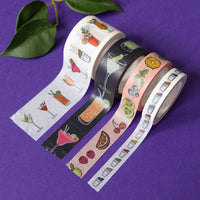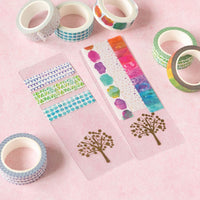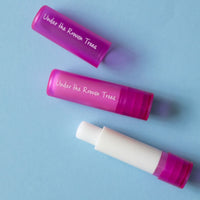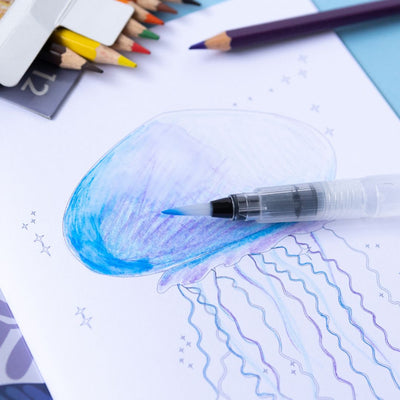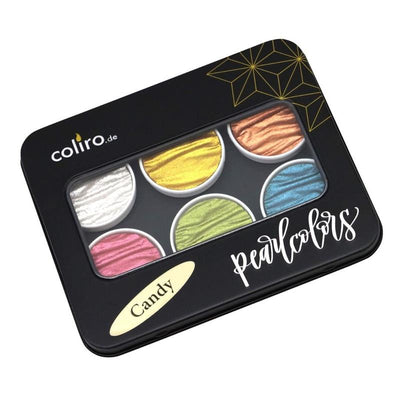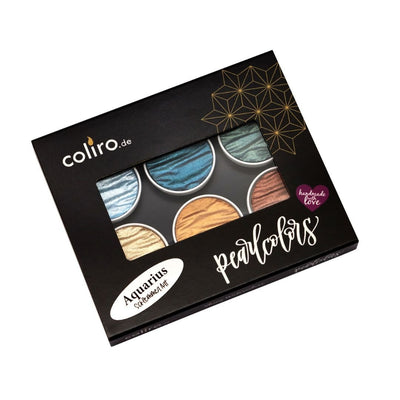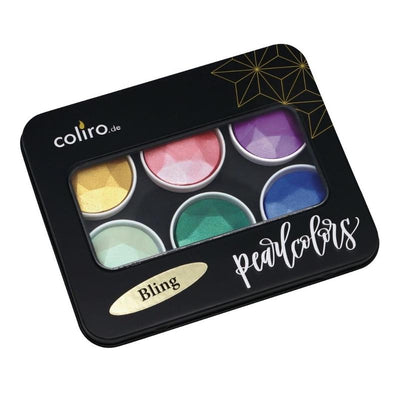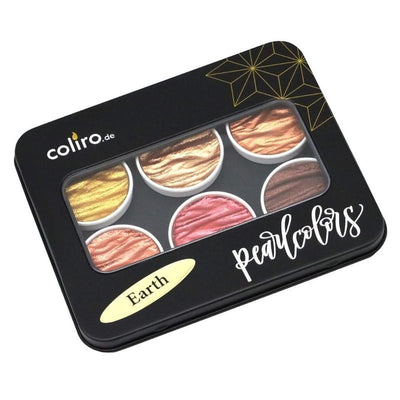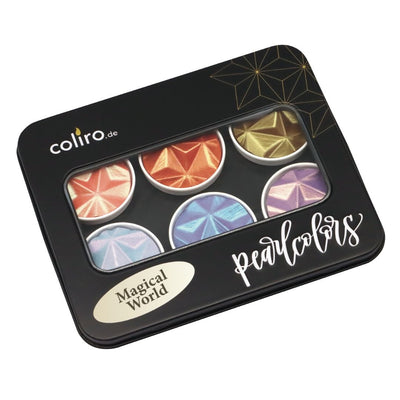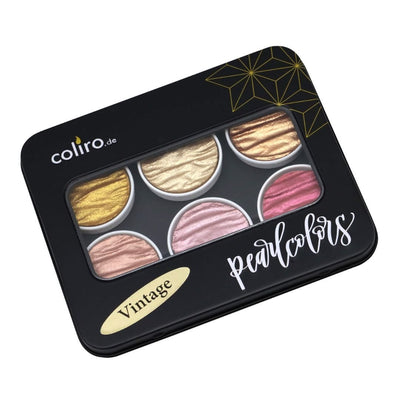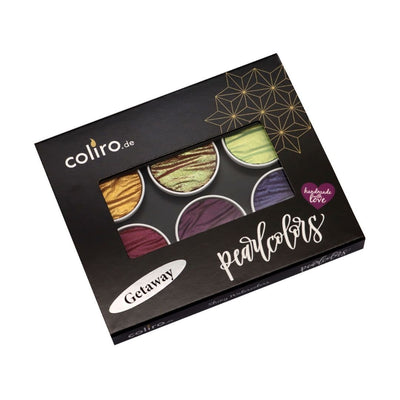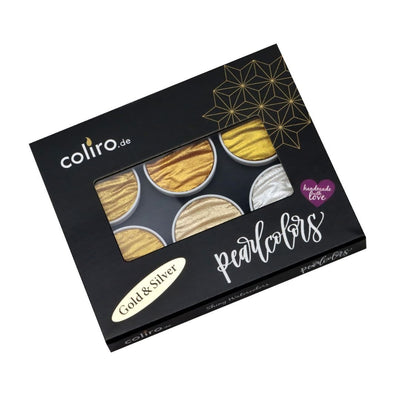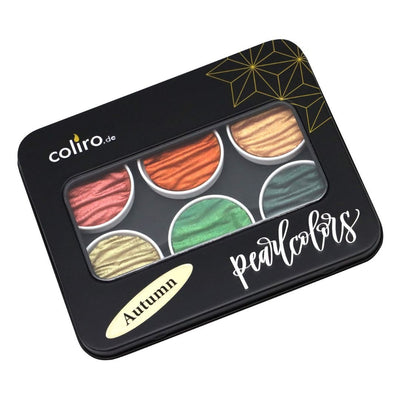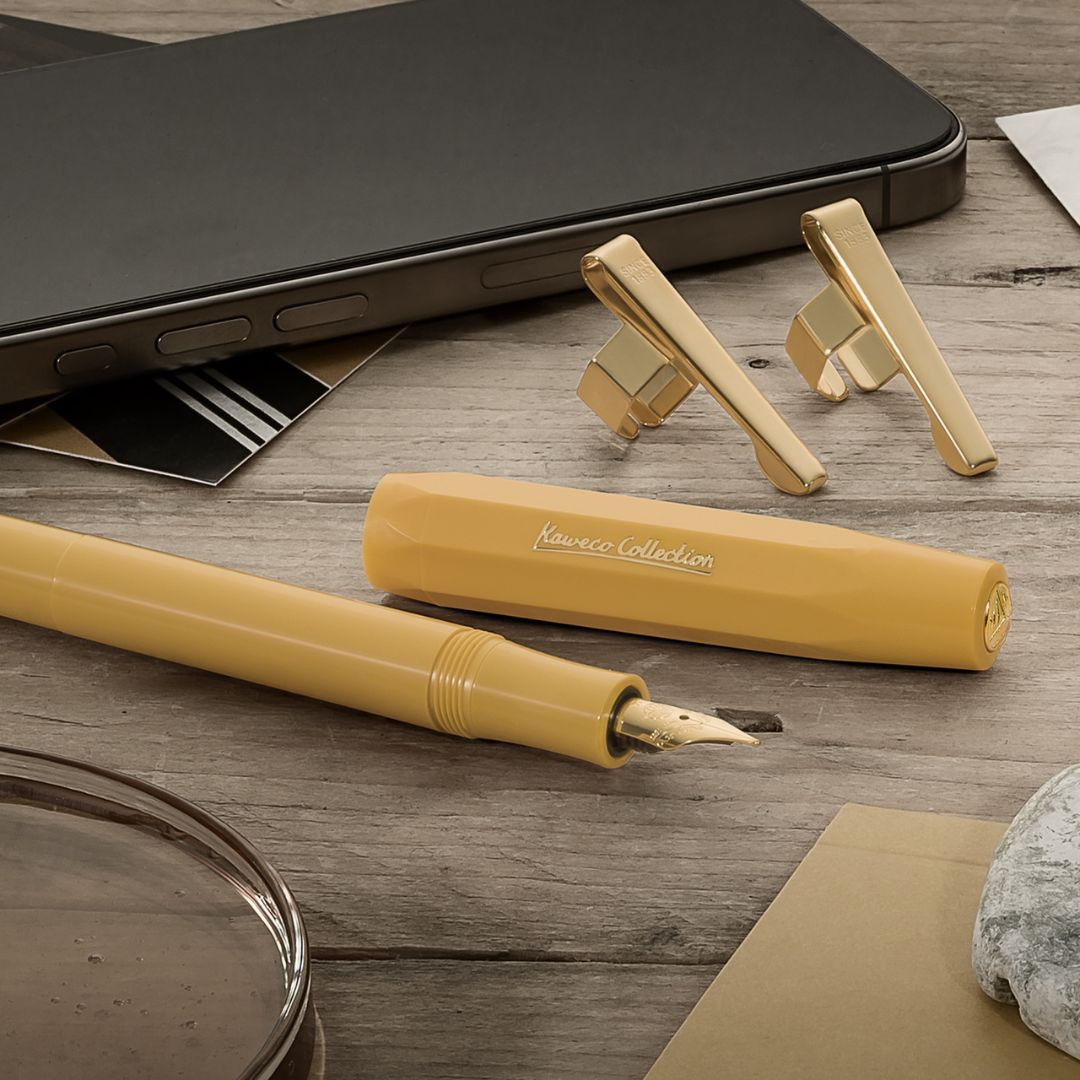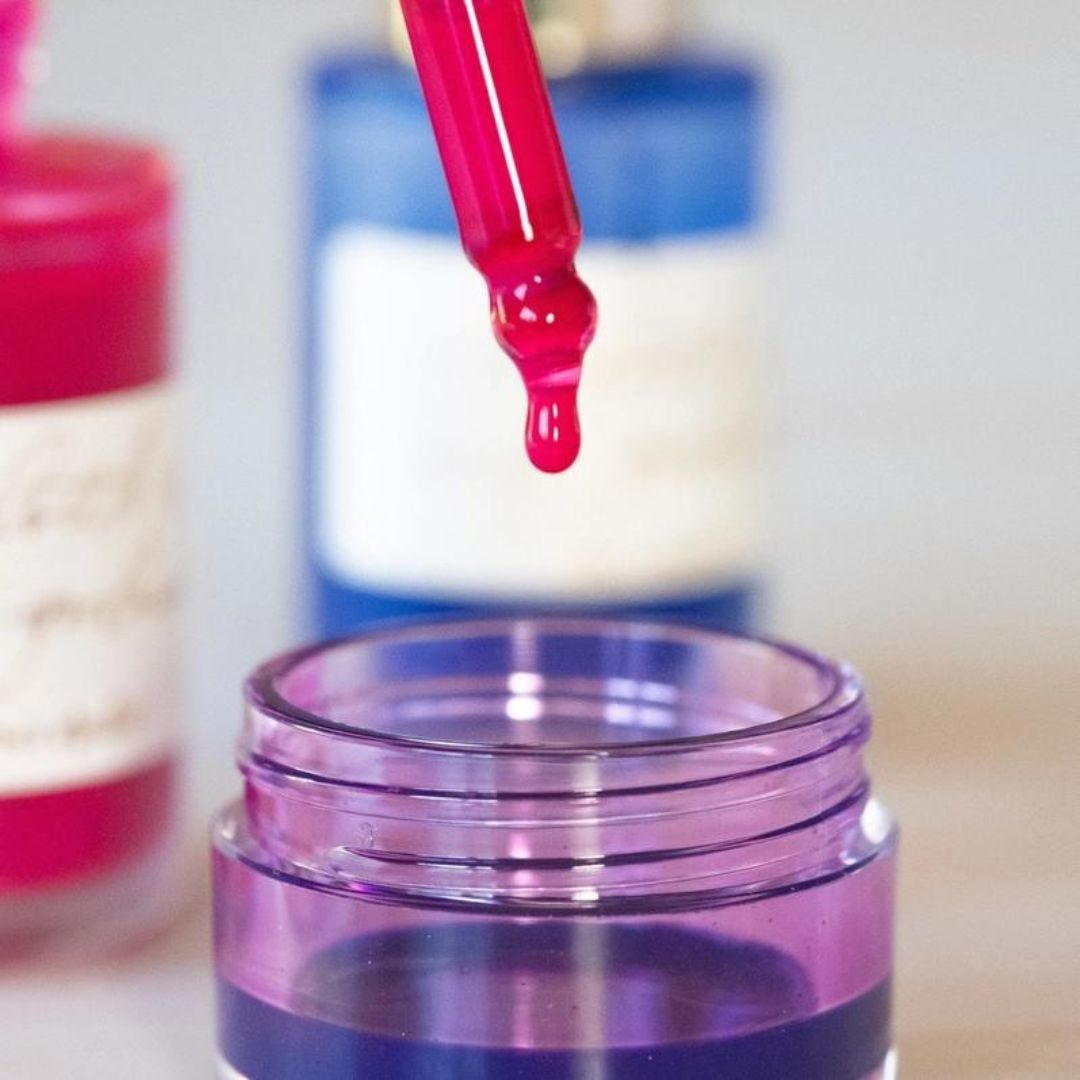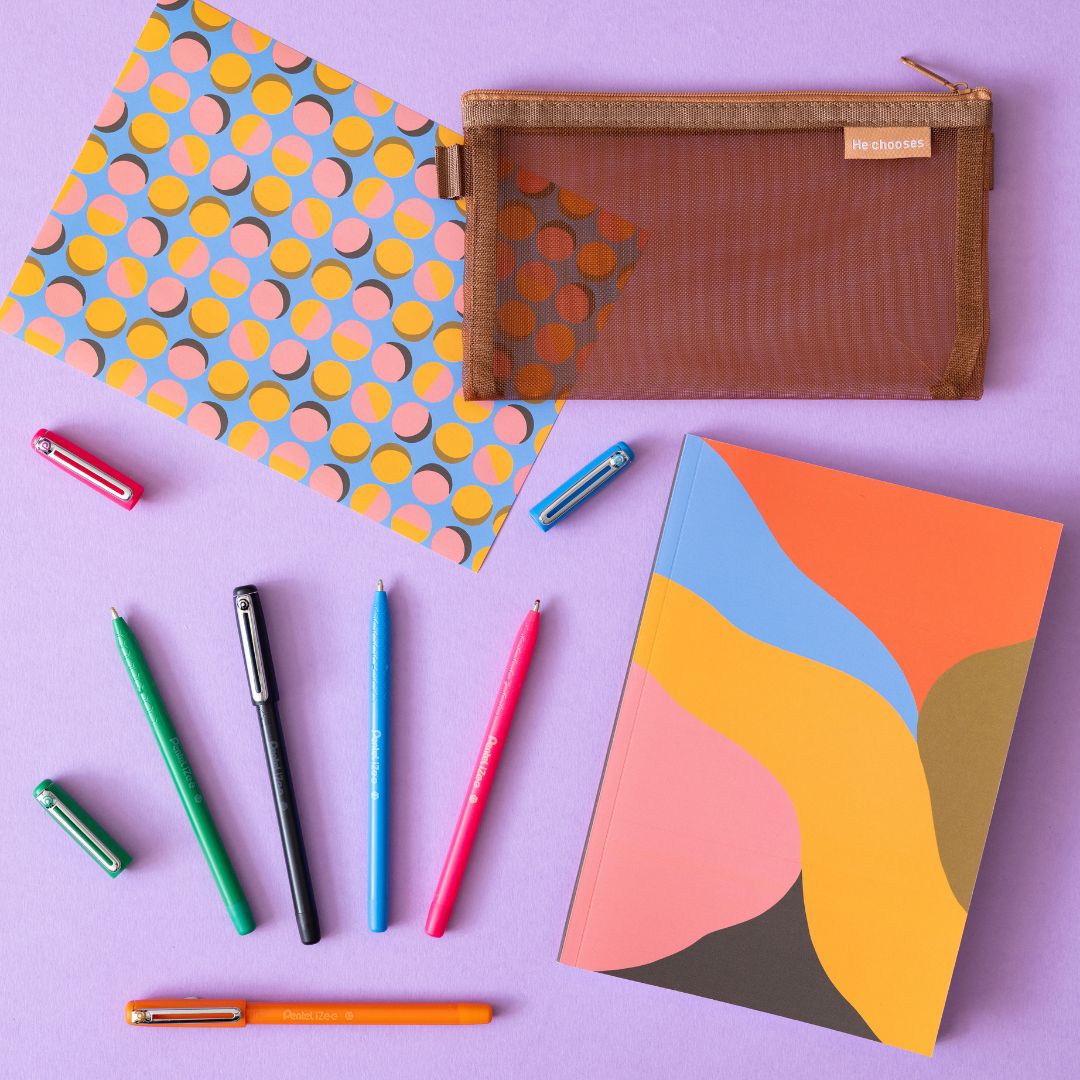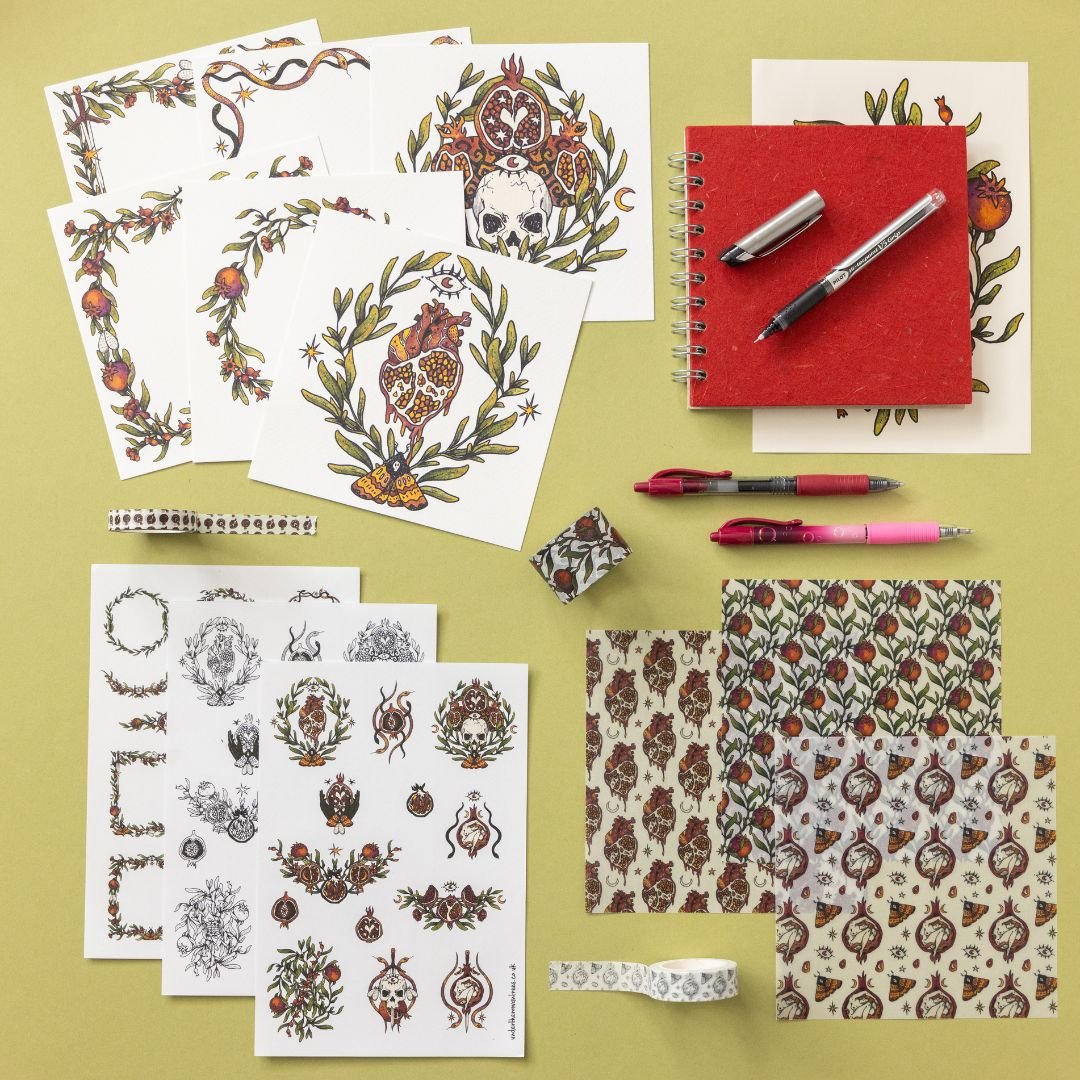If you’ve ever wanted to explore watercolour or level up your lettering, meet your new best friend: the water brush pen. Compact, convenient, and endlessly versatile, this nifty tool combines a brush and water reservoir into one, making it perfect for both beginners and seasoned creatives.
But how exactly do you use it? Don’t worry, we’re here to break it down for you!
What Is a Water Brush Pen?
A water brush pen looks like a regular pen or marker, but instead of ink inside, it’s filled with water. The bristle tip works like a traditional paintbrush, allowing you to blend, wash, and paint without needing a separate cup of water. It's especially great for use on the go or when you want to keep mess to a minimum.
Getting Started: How to Fill It
-
Unscrew the barrel of the pen from the brush tip.
-
Fill with clean water.
-
Screw the barrel back on, making sure it’s secure. Gently squeeze the barrel to encourage water flow into the bristles. You don’t want to flood it, just dampen the brush tip.
Tip: Some artists add a drop of ink or liquid watercolour to the water for a soft tint!
What Can You A Water Brush Pen For?
Blending Water-Based Markers
Use the brush to blend colours from your favourite water-based brush pens or markers (like Tombow or Writech). Apply colour to the page, then drag and blend with your water brush for smooth gradients and ombré effects.
Watercolour Painting
Dip your water brush into dry watercolour pans or use it to activate watercolour pencils. It gives you the control of a brush without all the gear.
Lettering & Calligraphy
Use your water brush with watercolour ink for beautiful brush lettering. It mimics traditional brush strokes and is great for expressive, fluid writing.
Background Washes
Perfect for bullet journal pages, art journaling, or card making—use the water brush to create subtle, dreamy washes of colour across your page.
Cleaning & Maintenance
Cleaning your water brush pen is super simple:
-
Wipe the tip with a paper towel while gently squeezing the barrel to flush out any remaining colour.
-
Refill with clean water as needed.
-
If bristles get stained, soak the brush tip in clean water for a few minutes.
Always store the pen with the cap on and upright to avoid leaks.
Top Tips
-
Don’t over-squeeze—it can flood the page.
-
Use watercolour-friendly paper to avoid pilling or warping.
-
Test your technique in a sketchbook first.
-
Pair with a good set of watercolour pencils or paints for best results.
Ready to Try It?
Check out our full range of water brush pens and watercolour supplies here. Whether you’re journaling, painting, or lettering, these handy tools make creative play easier than ever.
